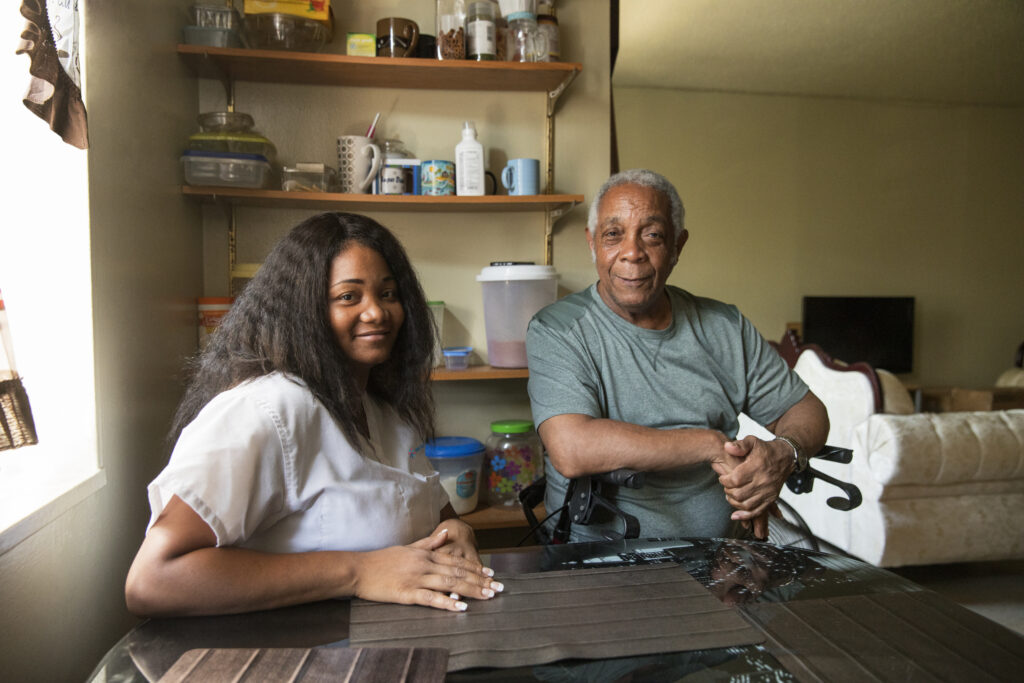
A loved one’s diagnosis with Alzheimer’s disease or another type of dementia can bring up a lot of questions. What can your loved one do on their own? Is it safe for them to live at home? How will you know when they need additional care?
When your loved one is diagnosed with dementia, they’ll change as their disease progresses — and your role as a caregiver will change too. But what will stay the same is your love for them and your desire to provide them with the best care possible.
Whether you’ve just noticed early symptoms of dementia, are wondering what’s normal aging and what’s not, or want to know how to support your loved one as their disease progresses, this guide can give you the information you need.
Resources for Caring for a Loved One with Dementia
Early Symptoms of Dementia
Alzheimer’s disease and other types of dementia can look different from person to person. There are many symptoms that might show up in the early stages, so it’s helpful to know what’s just a normal part of aging and what might be a sign of something worrisome. Here are some common early symptoms of dementia.
If you notice an older loved one having trouble with their memory, you may wonder if it’s an early sign of Alzheimer’s disease. Forgetting things is a part of life. You may forget a new acquaintance’s name, where you set down your cell phone, or why you walked into a particular room. No one can remember everything. However, here are two signs to look out for in your loved one:
- They consistently forget information that they just learned.
- They neglect routine tasks — their memory problems get in the way of their daily life.
Alzheimer’s disease and other dementias can affect how your loved one behaves. You may notice that their ability to control their emotions changes, that they are prone to outbursts. Your loved one might seem less motivated. As their disease progresses, they may have trouble sleeping or may behave impulsively. If you notice any major changes in how your loved one is acting, talk to their health care provider.
Getting lost while walking or driving in an unfamiliar place is normal. But when your loved one starts getting lost on their way to familiar places like the grocery store, this can be cause for alarm. You may find that they wander off or forget how they got to a certain place.
Many people start having trouble with daily tasks as they age, but this can be an early sign of dementia. We all sometimes button a shirt wrong or forget to take out the garbage. But if your loved one often wears dirty clothes because they forgot to do laundry or if you frequently see an overflowing trash bin or stacks of unopened mail — when behaviors become a pattern — this can be a sign of a bigger issue.
* 2023 Alzheimer’s Disease Facts and Figures
Dementia Support from VNS Health
-
Alzheimer’s & Dementia Care
Expert care for those living with Alzheimer’s or another type of dementia, and support for their caregivers.
-
Guide to Advance Care Planning
What you need to know and do to make sure your loved one gets the care they want.

